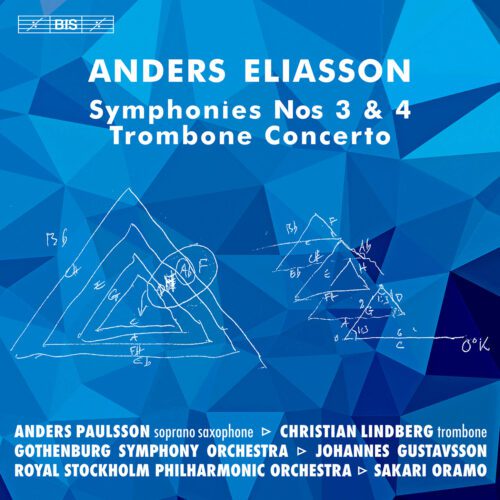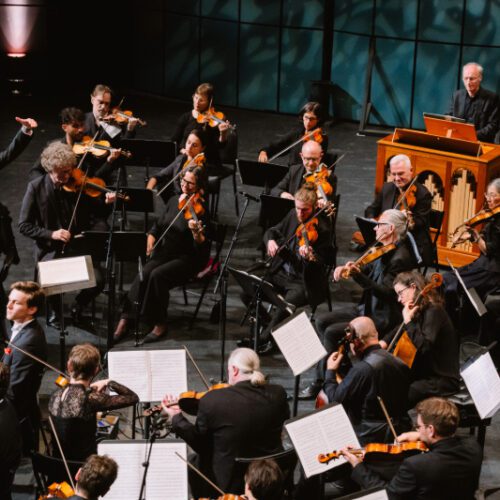Here is a superb discovery! The music of the Swede Anders Eliasson (who died in 2013) is a breath of fresh air in the world of serious contemporary music. In the world of “demanding” music, here is a language that is remarkably accessible and succeeds in being so without resorting to the recipes of current popular neoclassicism.
Eliasson played jazz and went through all the “necessary” studies of the 60’s and 70’s, i.e. dodecaphonism, strict serialism, musique concrète, etc., but he ended up rejecting the dictates of a certain academic establishment to follow his own path.
I discovered that there were better ways to make noise. You can’t break with over 1000 years of tradition without becoming incomprehensible. You can’t be intentionally ‘original’. Music is like H2O: melodies, chords and rhythms are all one. And it has to flow.
Anders Eliasson
Eliasson’s secret is the use of a tonal anchor (modal, in fact) around which melodies and rhythms swirl freely, magnified by a plethoric, but fine and luminous orchestration. The forms and textures of this music are constantly morphing, in a frenzy of changes that are executed in a remarkably natural and organic way. Imagine an octopus that moves with incredible grace at the bottom of the ocean, in an almost incomprehensible fluidity, then transforms itself, changes colors, shrinks, swells, adorns itself with an appearance that is alternately smooth like a pebble or punctuated with asperities. All this in a few seconds. It is fascinating.
Elisasson’s symphonies are octopuses that are difficult to grasp, but fascinating to listen to, for all these reasons adapted to the musical realm. The Symphony No. 3 for soprano saxophone and orchestra is the best example of this program. The presence of the soprano saxophone brings a radiant petulance to the ensemble, as well as an incomparable lightness. This musical world reminds me of the Englishman Robert Simpson, the modern composer whose current anonymity is probably the most unjustified in the musical world!
Symphony No. 4 is a bit more tormented, but the same sense of eloquent grandeur emerges. The orchestral swarming is often ear-splitting! There is something of the cinematic symphonic flights of John Williams in the energy here, but also string fabrics that may recall Herrmann or Goldsmith. The Trombone Concerto swims in the same waters, expressing a more tormented facet, but just as exhilarating in its abundant sonorities.
The soloists are remarkable (Anders Paulsson on soprano saxophone and Christian Lindberg on trombone) and the orchestral opulence is sumptuously rendered by a warm sound recording.
Must-listen-to music!
























